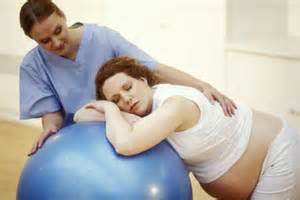|
| |
Labor, Birthing and Homeopathy
Homeopathic remedies can help a pregnant mother
achieve a natural delivery and reposition a breech position baby.
Contact us to learn more!
Click Here to Buy Remedies and Supplements from Homeopathic Remedies Online Store
Homeopathy For
Group B Strep GBS In Pregnancy
Read About Pregnancy Remedies
Read Story of a Breech Baby Flipped
With Homeopathy!

Homeopathy
For Labor Birthing
There are many highly effective
homeopathic remedies to help deal with
possible problems during childbirth, such as a cervix which is slow to dilate,
pain, excessive bleeding, retained placenta, other difficulties.
Your
Homeopath
can advise you and your partner on the use of remedies prior to labor. Be
sure to bring your acute remedy kit and
dosing supplies to the birthing center and these specific remedies below
with you, as well as clear written dosing instructions for your midwife
and/or partner to follow.
The following remedies are often required, both
during and after labor, so be sure to review this list and have as many of these
on hand for delivery in a 200C potency for water
dosing
Homeopathy to Induce Labor -
use to induce labor with professional
guidance.
The most common
homeopathic remedies used to induce labor are Pulsatilla, Caulophyllum and
Cimicifuga. Use homeopathy to avoid
chemical inducing drugs like Pitocin, if the baby is overdue.
-
About Caulophyllum only
for inductions
-
It is
primarily indicated for sedentary women with poor muscle tone. It can be
taken to prepare women for easier births and for women with a history of
gynecological problems or past difficult births. Women who are fit, who have
healthy muscle tone, should avoid this or or take only on the
instruction of an experienced herbalist or homeopath.
-
Method #1
Overdue Babies with Caulophyllum 30C
-
To help
start a labor it the baby is over due, take the Caulophyllum
30C dry, 2 pills for three times daily for up to two days.
-
Then
repeat it 3 - 7 days later if the labor still has not begun.
-
These will help bring on a natural labor.
-
Method #2
Caulophyllum 15C or 30C and Cimicifuga 15C or 30C - choose same potency of
each - start on or after due date
-
Take the remedies in alternation (2 pills dry under the
tongue) rotating between them every one hour for 4
doses each, then stop for 24 hours.
-
These will help bring on a natural labor.
-
During labor they increase contractions.
Take Caulophyllum 12C and Cimicifuga 12C as 2 pills dry every
15 minutes for 1 hour. Wait 15 minutes
and then repeat for an hour.
-
Pulsatilla
This remedy
can also induce labor as well as treating a breech position. A person who
will benefit from
Pulsatilla
is changeable in nature, emotionally. It will be useful in starting labor
for those who weep easily, seek comfort and
reassurance and tend to be be indecisive. They many also feel emotional the
baby or other children. They have fear of being abandoned and will look to
those around her for guidance and support. They are reluctant to go
into labor without their own doctor, a midwive, husband, mother or a support
support team that is assembled all around her.
-
Red Raspberry Leaf Tea
Drink daily as will will romotes stronger
contractions of the uterus. Red raspberry leaf tea if used throughout the
entire third trimester to help tone the uterus and get it ready for
labor and delivery. It is not going to necessarily induce labor on its own,
but when used in combination with other methods it can speed up the
progression of labor and promote strong, healthy contractions.
Homeopathic Remedies for
Labor and Birthing Support
-
Aconite (Aconitum Napellus)
If the labor is too fast (any stage), the pains are very strong (even unbearable).
Feeling of panic.
Contractions feel violent and intense, producing a state of fear and
anxiety. Restless, agitated and fearful that may die. Baby appears shocked
and frightened after birth.
-
Arnica Montana
Indicated for relief of soreness that comes from
physical exertion and muscle strain. It is also useful for soreness after
labor and delivery, and for hemorrhoids that follow childbirth. An indispensable remedy that can be given from time to time during labor to
help the muscles function properly, to relieve the over-exertion of labor and
reduce the bruised feeling after delivery.
Feel bruised, sore, as if beaten during labor. Don’t want people to touch.
Relieves soft tissue damage (perineum or abdomen) following birth or
caesarian section – reduces swelling, bruising, and risk of infection, and
promotes healing. Useful for caput or cephalohaematoma of newborn.
-
Arsenicum Album
Deeply believes it is possible she will die
during birth. Tries to combat this fear she over researches and over
plans every possible aspect that she can control. Fear of vomiting.
Fear of having a bowel movement during labor. Fear of swearing, hitting or
shouting at her partner. Fear of the house being messed up. Fear of
getting an illness while in the hospital.
Anxious restlessness leading to physical exhaustion. Chilly with anxiety. Perineal infections following childbirth.
-
Bellis Perennis
For
bruised,
sore pelvic or abdominal tissues following birth or Caesarean section. Bellis often follows well after Arnica, or when Arnica fails to relieve the
discomfort or pain.
-
Calcarea Phosphorica
To strengthen a woman who tends toward easy tiredness,
poor digestion, cold hands and feet, and poor absorption of nutrients. Some
women who need this remedy find only “junk food” appealing during pregnancy
or have cravings for smoked and salty food. A history of easy tooth decay
and aching bones and joints can also suggest a need for this remedy. Often irritable because of
tiredness, and may long for travel or a change of circumstances.
-
Caulophyllum
Weak muscle tone in the uterus. A history of irregular periods,
slow and difficult labor with previous deliveries, or weakness of the cervix
may bring this remedy to mind. The woman may feel erratic pains like
sticking needles, or episodes of contracting pain. Typically feels
nervous, shaky, and trembling, sometimes irritable. For a difficult labor where the cervix is slow to dilate and the pains are
strong but ineffective. Person feels cold and trembling.
False labor where pains fly about the abdomen. Rigid cervix with pricking
pains – cervix fails to dilate. Contractions become irregular and cease.
-
Carbo Vegetabilis
Feels weak and faint during
pregnancy, with poor circulation, a general feeling of coldness, and a
craving for fresh or moving air. Frequent digestive upsets
with burning pain and a tendency to belch. Deeply tired from
overwork, many pregnancies close together, or a previous illness may regain
some strength.
-
Cimicifuga
Nervous and talkative, with a tendency to feel fearful and
gloomy during pregnancy. Becomes over agitated and fears a miscarriage
— sometimes having pains that feel like labor pains too early, or pains that
shoot from hip to hip and down the thighs.
Cervix spasms and becomes rigid on examination. Uterus ascends high into the
abdomen during contraction. Pains fly from side to side of the abdomen.
Irregular but painful contractions. Caulophyllum and Cimicifuga can be
alternated 15 minutes apart when contractions are irregular and it is hard
to determine which remedy is needed. Cease upon contractions becoming
established and regular.
Can be used to induce labor with
professional guidance.
-
Chamomilla
The pains are unbearable even
early in the labor. Extremely irritable or angry. No matter what is offered
or done, it is not right. Hands and feet cold.
-
Ferrum Metallicum
Sturdy build, but looks very pale and weary. Flushing red
from any exertion or emotion. Often helpful in correcting anemic tendencies.
-
Ferrum Phosphoricum
Nervous, sensitive women who often feel weak
or tired, with easy flushing of the face and a tendency toward anemia. Slender build and may develop
frequent neck and shoulder stiffness.
-
Gelsemium Sempervirens
Weakness and exhaustion – difficult to support
weight. Muscles tremble with the effort of movement. Contractions weaken and
cease.
-
Hypericum Perforatum
Shooting nerve pains following perineal damage or caesarian section.
-
Kali Carbonicum
Irregular contractions. Kali carb is for back labor - posterior
position of the baby. Pain of
contractions felt mainly in the back (such as with posterior position
babies). Feels as if back may break, much better for firm pressure. Fearful
of dying.
-
Kali Phosphoricum
Exhaustion during labor, mental, emotional and physical.
Physical exhaustion either during or after labor where few other symptoms may be present (compare with
Arsenicum).
-
Nat Mur
Woman is feeling exhausted, withdrawn, or is in a grief state about the
pregnancy or is feeling disappointed about the birthing process or the birth
plan not going as hoped. Does not want to be observed while laboring.
It can also help a baby settle into optimal birthing
position. Natrum muriaticum can help to induce
labor or strengthen ineffective labor contractions. It can be helpful with
postpartum bleeding and a reluctant placenta. It can be the remedy for
afterpains, postpartum depression and mastitis if the mother presents a
Natrum muriaticum constitution.
-
Nux Vomica
Indigestion, heartburn, stomach pain, and constipation during pregnancy. Impatient, irritable, and chilly.
-
Pulsatilla
Changeable and erratic contractions. Very
restless. Weepy and wanting support and comfort from others. Happy to be
held. Flushed face. Moody and emotional, and want a lot of affection
and attention. Useful in a breech
position baby, with professional guidance. Feel uncomfortable in hot weather and in stuffy rooms,
improving from gentle exercise in open air. Use when contractions are irregular and weak, the cervix is slow to dilate and
the woman
feels miserable, clingy and tearful. Woman may talk about wanting to give up and go
home.
-
Pyrogenium
Important remedy if a post-partum
infection in the uterus develops following childbirth. Rapidly resolves
sepsis. May be used for its protective effect against infection of mother or
baby if the membranes have been ruptured for a long time before the onset of
labor, especially if a temperature develops.
-
Sepia
For women who are tired, dragged out, and
irritable during pregnancy and feeling overburdened by demands of family
members, or with little enthusiasm for the pregnancy. Poor circulation, nausea, constipation, a tendency toward accidental
urine loss, and a feeling of sagging or weakness in the pelvic floor. Better
with an energy-boost from exercise.
-
Staphysagria
After incision,
penetration, or stretching of muscle fibers, such as in Caesarean
sections or dilatation and curettage (D&C). Supports the
quick healing of incisional or lacerated wounds. Relieves the feelings of
anger, resentment, disappointment, and emotional upset that may follow a
Caesarean birth.
Healing
After Your Birth
After the birth, homeopathy can help to speed up healing for yourself and your baby - this will help the woman to enjoy the
whole experience more:

-
Aconite
For shock following the fear of the intensity of birth, in yourself, your
partner or your baby.
-
Arnica
To relieve soreness, bruising and after-pains. Also helpful for babies who
are bruised (from a long labor or a forceps delivery).
-
Bellis perennis
If woman is still sore after three days to help with bruising to deep muscle
tissues
-
Kali phos
For mental exhaustion after delivery, with headache, tiredness but too
excited to sleep, especially in the first day or two after the birth
-
Pulsatilla
For post-natal ‘blues’, especially when the milk comes in. Utterly miserable and burst into tears at the slightest thing but
feels much
better for being comforted
-
Sepia
For women who are tired, dragged out, and
irritable during pregnancy and feeling overburdened afterwards by demands of family
members, or with little enthusiasm for the pregnancy. Irritability,
feeling burnt out. Poor circulation, nausea, constipation, a tendency toward accidental
urine loss, and a feeling of sagging or weakness in the pelvic floor. Better
with exercise.
| |
|